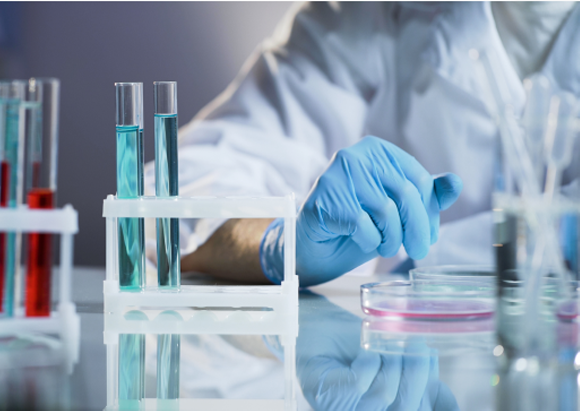Laboratory studies
The laboratory unit (Clinical and diagnostic laboratory) is equipped with innovative diagnostic equipment with high analytical characteristics of expert level for monitoring the effectiveness of rehabilitation programmes, early (preclinical) prediction of pathological conditions in accordance with the requirements of regulatory documents in relation to medical (clinical and diagnostic) laboratory services.

At the present stage of development of medical science, programmes of rehabilitation, rehabilitation treatment, and organism recovery are based on correction of cellular metabolism, disorders of which are determined by laboratory methods of research. Modification of lifestyle, diet, type and intensity of physical activity in combination with balneological, physiotherapeutic, medicinal methods of treatment have a complex effect on regulatory, synthetic and other cellular functions, which disorders are diagnosed in the clinical and diagnostic laboratory.
Laboratory staff
Types of studies
- Haematological tests are performed on a modern diagnostic haematology analyser "ABC Pentra 80 XL" manufactured by HORIBAABXSAS, France.
- Biochemical tests are performed on an automatic analyzer "Conelab 30 i" manufactured by Thermo Fisher Scientific Inc., Finland. The results of clinical biochemical examinations on "Conelab 30 i" of expert level, are characterized by high analytical characteristics with the possibility of single-step screening of 30 indicators.
- Haemostasis tests are performed on "CA600 series" automatic analyzer for coagulation tests manufactured by Sysmex Corporation, Japan.
- Antigens, antibodies, cell markers and analytes are analyzed on "BEP 2000 Advance", "IMMULITE 2000 XPI" automatic analyzers manufactured by Siemens Healthceare Diagnostics Products GmbH, a leading manufacturer of high-precision analytical equipment for laboratory research, using enzyme immunoassay and amplified chemiluminescence immunoassay methods, enabling third generation tests with high analytical performance.
- "BEP 2000 Advance" automatic enzyme immunoassay analyzer allows up to 48 different immunological tests to be performed at the same time.
- Immune status monitoring is performed on "BD FACSCan-toII" cytofluorometer, manufactured by Becton Dickinson, USA. The technical specifications of the analyzer allow for multi-parameter analysis of immunocompetent cells:
- extended determination of the immune status;
- determination of the non-specific immune system (phagocytosis);
- diagnosis of seronegative autoimmune diseases (HLA - B 27);
- analysis of the expression of lineage-associated and prognostically important markers in oncopathology and autoimmune diseases.
- Molecular genetic testing:
- identification of genetic polymorphisms associated with cancer risk;
- identification of polymorphisms of human genes associated with male infertility - determination of AZF locus deletion, CFTR gene mutations;
- diagnosis of female infertility (identification of polymorphisms associated with the risk of developing thrombophilia and defects of folate cycle enzyme genes);
- identification of risks of cardiovascular diseases (atherosclerosis, hypertension, myocardial infarction, stroke);
- identification of risks of metabolic disorders (diabetes, syndrome of cardio-metabolic disorders, osteoporosis, obesity, insulin resistance, etc.);
- pharmacogenetics - sensitivity to statins, anticoagulants (including aspirin and others);
- identification and quantification of urogenital tract infectious agents: the high risk carcinogenic human papillomavirus, aerobic, anaerobic microorganisms, mycoplasmas, fungi, pathogenic microorganisms, markers of the normocenosis.

